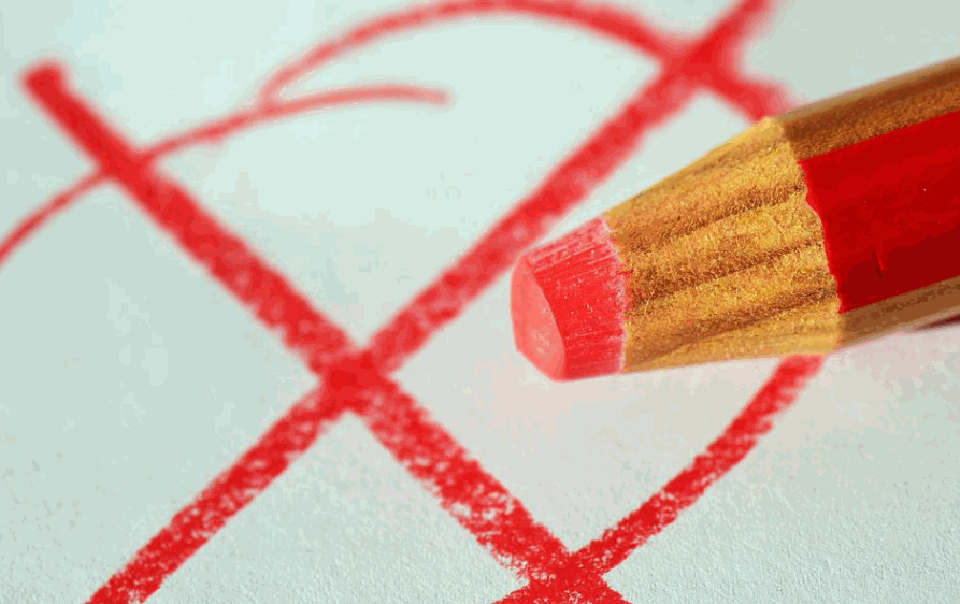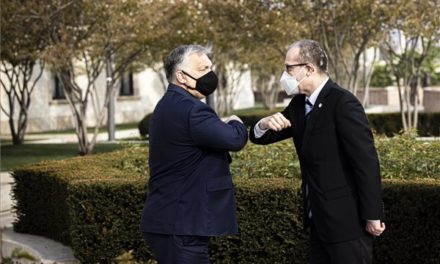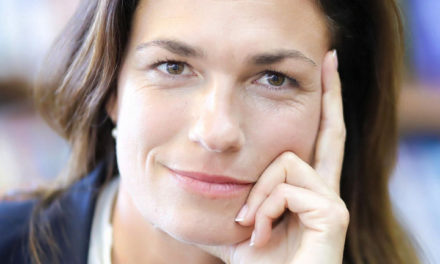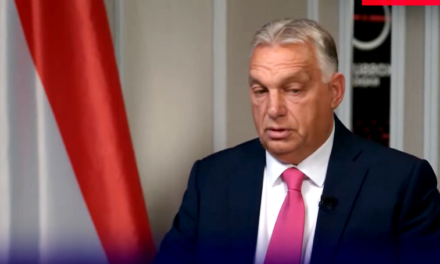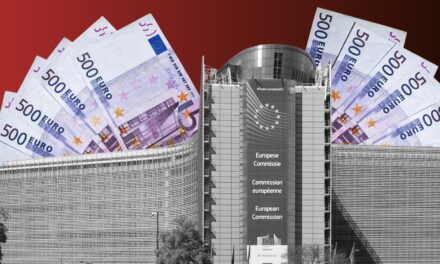All major media outlets report on the EU elections. Press review!
On Sunday, on the fourth and last day of the European elections, voters will go to the polls in 21 EU countries. Italy will be the last country to close its polling stations at 23.00. Around 360 million EU citizens can cast their votes in total to elect 720 members of the European Parliament in the world's largest international election.
Opinion polls predict a historic breakthrough for right-wing parties, while centrist, pro-European forces may come under pressure.
Such an outcome could shift the balance of power in the EU's only democratically elected institution and give right-wing forces more influence over EU policies, from climate change to migration and trade.
At stake is who will take the lead in Brussels' European institutions, including the Commission and the Council, and the elections will set off a race for the top EU positions.
Voting has already closed in six EU countries: the Czech Republic, Ireland, Latvia, Malta, the Netherlands and Slovakia. Voting opens today for the first time in 21 EU countries, while voting continues in Italy and Estonia.
Today, people go to the polls in 21 countries, the polling stations in each country opened at the following times:
• 6 a.m. – Hungary,
• 7 a.m. – Austria, Bulgaria, Croatia, Cyprus, Greece, Italy, Poland, Romania, Slovenia, Slovenia, Croatia,
• 8 hours – Belgium, France, Germany, Lithuania, Luxembourg, Portugal, Germany, Portugal,
• 9 am - Denmark, Estonia, Finland, Spain, Sweden, Sweden.
Euronews writes :
• Dutch results.
47% of the Dutch electorate voted on Thursday (June 6), and the right-wing PVV party emerged as the biggest winner of the night in the exit poll, jumping from one seat to seven. However, the Green-Socialist coalition surprisingly won eight seats, according to the forecast, which will be confirmed in the evening.
• Cyber attacks.
At least three Dutch parties said their websites were attacked by a pro-Russian hacker group.
• Ursula von der Leyen was harassed by pro-Palestinian protesters - who painted their hands red - and booed her campaign speech at a rally in Portugal on Friday (7 June).
• Historically low participation in French overseas territories.
Yesterday, voters cast their ballots more than 15,000 km from Brussels, in the French overseas territories of Martinique, Guadeloupe, French Guiana, Saint-Martin, Saint Pierre and Miquelon and French Polynesia. According to French media reports this morning, turnout was at an all-time low as of 17:00 local time in the Caribbean islands of the Antilles. In Guyane, just over 13% of voters were estimated to have cast their ballots. This number was only 8% in Martinique and 11% in Guadeloupe.
• An estimated 72.8% of eligible voters went to the polls yesterday in the EU's smallest country, Malta, according to pollster Europe Elects. Malta elects only 6 members to the European Parliament, which is the smallest representation, similar to the other island state, Cyprus.
Euractiv 's report:
• Hungary votes after the opposition demonstration. About 7.8 million eligible citizens can vote.
The vote is taking place after a large opposition demonstration, which mobilized tens of thousands of protesters in Budapest on Saturday. Despite this, opinion polls show that the ruling Fidesz party is likely to get the majority of the vote, although the opposition could reach up to 30%.
• EU election day in Sweden: trolls, far-right and losing liberals.
Swedes vote today between 08:00 and 21:00, with the first exit polls published at 9:00 p.m. The final official results are expected at 1:00 a.m. on Monday (June 10), showing how the seats of the 21 Swedish MEPs are distributed.
The Swedish campaign has been dominated by a far-right troll factory scandal, as Swedish broadcaster TV4 revealed earlier this month that the far-right Sweden Democrats (ECR) used numerous anonymous accounts to spread social media content favorable to their views, sometimes at the expense of their coalition allies.
The case has undermined the leadership of Swedish Prime Minister Ulf Kristersson, highlighting the divisions between the coalition parties - made up of the Moderates (EPP), the Christian Democrats (EPP) and the Liberals (Renew Europe) - which have entered into a formal political agreement with the far-right Sweden Democrats.
It is also expected that the liberals will be defeated in Sweden,
and the opposition Centrum party (Renew Europe) is doing everything to drive the Swedish liberals out of Renew because of cooperation with the domestic extreme right. While MEPs from the powerful Swedish Social Democrats are expected to win the largest share with six seats, the ECR's Sweden Democrats are likely to send four or five MEPs. The Swedish Prime Minister's EPP MEPs do not rule out cooperation with the Social Democrats and the ECR's Sweden Democrats, paving the way for a wide range of post-election alliances.
• Familiar faces and newcomers, key agri-food industry candidates in the EU elections.
Who is expected to drop out and who will be new in the European Parliament's Committee on Agriculture (AGRI).
The agricultural sector is in the spotlight after a wave of demonstrations rocked the bloc earlier this year, with political families in the European Parliament positioning themselves as allies of farmers, claiming to have solutions to their discontent.
However, the fact that some MEPs specializing in agricultural policy were not placed high enough on their national lists to be re-elected, or did not run at all, caused displeasure among many.
• Counting of Irish votes begins this morning - we can expect that Ireland voted on Friday, but the counting of votes will not start until today.
Due to Ireland's proportional representation system, votes must be recounted several times, so it may take a few days to get a clear picture of the country's next MEPs. However, by late afternoon, we can see more clearly which candidates are certain to win and who are fighting for the last places in each constituency. The counting of votes for the parallel local elections began yesterday.
The three governing parties performed better than expected. The two largest parties in the government, Fine Gael (EPP) and Fianna Fail (Renew), can expect only minor losses. As of 7am local time today, according to the Irish Times, they had received 24% and 23.2% of first preference votes respectively. The Greens – the third coalition party – also performed worse than their 2019 results, but did not suffer a historic defeat.
After four years of government, this is a better result than many of the ruling parties expected.
Left-wing Sinn Fein is the main opposition nationally and is expected to do well in this year's local elections. Although the party performed well in pre-election polls, its support has fallen in the past week. The party received just 11.3% of first preference votes, according to the Irish Times. This trend is also reflected in the European elections. In April, the party could have won six parliamentary seats; now they are happy to have three.
The largest share of local votes counted so far went to independent candidates - 26.5% of the first preference votes.
• Bulgarians go to their sixth parliamentary election in three years on Sunday, but analysts say the vote is unlikely to produce a stable government that can end long-running political instability and unblock economic reforms.
Bulgaria, the European Union's poorest member, has struggled with constant changes of government since anti-corruption protests in 2020, as a series of elections produced shaky coalitions that quickly collapsed.
The latest polls show no party will win a majority, suggesting another round of coalition talks as the votes come in. Bulgaria needs a period of stable, well-functioning government to accelerate the flow of EU funds into its crumbling infrastructure and advance the adoption of the euro and full participation in Europe's open-border Schengen area.
Plans to join the euro zone have already been postponed twice due to the failure to meet inflation targets. Accession is currently planned for January 2025. Failure to form a stable government would increase the risk of further delays.
• The French right is apparently open to an agreement with the hard right in the EU parliament.
While Ursula von der Leyen, President of the European Commission, has stated that she is willing to cooperate with the EU's conservative ECR group under certain conditions,
the French right-wing Les Républicains party's (EPP) European electoral list candidate, François-Xavier Bellamy, appears to be leaving the door open to talks with the hard right.
Featured Image: Pixabay

